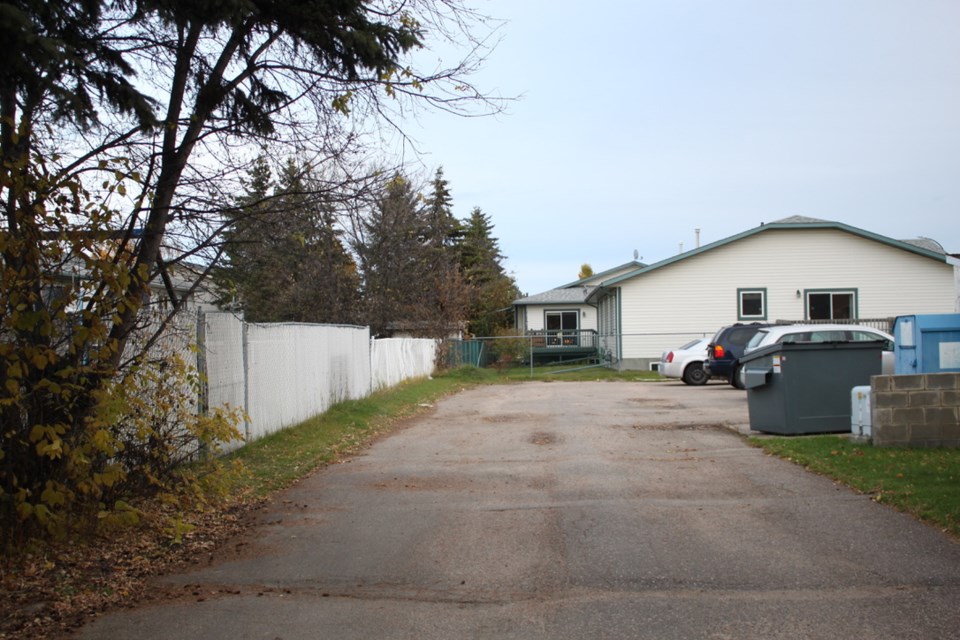BONNYVILLE – A methane leak that requires the demolition of several homes in Bonnyville to fix the issue has left residents wondering what the final plan will be - and how they will be compensated.
A resident of one of the homes set to be demolished says the stress of not knowing is keeping her up at night, as there are no other local housing options available to her that will meet her accessibility needs and give her the security of a gated community.
“I toss and turn at night. I don’t even know what to do. It's wearing . . . I asked them for a date, and they said they don’t know. You sit and you wait, and you don't know. We’re supposed to be retired, this is not good for our brains,” said the resident, who requested to remain anonymous.
An appraiser from Calgary was sent to her home, and a representative from the Orphan Well Association (OWA) informed her that their original plan had been slightly changed, and equipment would enter the gated community from a different route.
According to the 2023/24 annual OWA report, “We engage landowners about our plan to decommission, remediate and reclaim the site, so they understand who will be on their land and what work will be done. Landowners are often frustrated after years of feeling the impacts of these sites. We work hard to address their concerns and mitigate these impacts within the authority we have been given.”
The resident said she feels as though OWA has been granted all authority in the situation, and she has little say with decision making.
“Can they not do diagonal drilling? Are there really no other options?” she asked. “They just want to do it as inexpensively as possible, and I understand that, but at the same time, then don't send an appraiser from Calgary, use someone local,” said the resident.
The resident has been going over a blueprint and feels that there could be less invasive ways to address the issue, specifically by utilizing a side ally.
The resident said she will not be permitted to rebuild after the work is done, and questioned what will happen with the land and who will be responsible for it.
OWA President Lars DePauw commented on their potential plans for a green space.
“At this time, we have not made any decisions on what will happen with the land, but we’re reviewing several options. For example, one of the options would be leave the area as a green space. We’ll be discussing the various options with stakeholders in the coming months,” said DePauw.
The resident has questions about the safety of the site once the well has been closed off.
“If it’s not safe for me to rebuild, why can they build a park on top of it where people can sit on the grass with their kids and eat?” she asked.
The resident felt the OWA has ample experience working in non-residential settings such as farmers' fields, but feels they need to work on how they approach closing these wells in urban areas, perhaps investing in equipment that can handle smaller spaces.
“If I have to go through this, I want to make sure I do what I can so the next person doesn't have to go through the same thing,” said the resident.
When asked if the OWA takes nuances into consideration when compensating, such as accessibility issues, or if compensation is strictly fair-market value, DePauw declined to comment, citing it as a sensitive issue.
“At the first meeting [the OWA was] very defensive, and I understand . . . there’s people that take advantage and they probably get their share of that . . . and it’s not their fault that this has happened,” acknowledges the resident.
But she still feels the OWA cannot go unchallenged and hopes there will be a resolution where she can stay in her home or rebuild after a period of time.
“What is my life worth? What is my peace worth? . . . I don't want to live in a mansion. I want to be here with this little happy group. If there was another gated community I would more likely be OK to go,” said the resident.
The Town of Bonnyville is keeping up to date on the situation, and Mayor Elisa Brosseau recently offered a comment to Lakeland This Week.
“The Town is taking this situation very seriously. Mayor and council have met directly with the AER (Alberta Energy Regulator) and OWA for a briefing, and we continue to be in communication with them. We also have a member of administration and our chief administrative officer attending the working group meetings so that we are up to date with the actions and decisions of the situation as it is ongoing,” said Brosseau.




